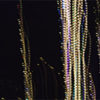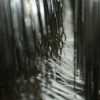Seminar Blogs

“Post-publishing in the COVID-19 era: the Italian case” – Angelo Zinna
In the sixth session of Transmissions in Motion, Dr. Janneke Adema discussed new and experimental approaches in the world of academic publishing, arguing in favor of a reevaluation of concepts such as “book” and “author” in order to better suit what she defines as the “post-humanities.” Adema explains that thanks to the rise of digital…
Read more
“Post-Publishing against the Market?” – Dennis Jansen
Janneke Adema’s notion of “post-publishing,” as discussed in her recent TiM webinar, arrives at the intersection of two notable trends in Western academia. On one hand, the increasing significance of posthumanist and post-anthropocentric thought across the Humanities, which are now said to be transforming into a “posthumanities” (e.g. Braidotti 2013). On the other hand, the…
Read more
“Environmental Intelligence” – Chris Julien
Data Echoes What can our hearing teach us about the entanglements of intelligence with our physical bodies, and, by extension, about the intelligence of other systems – living and algorithmic? Dr. Thomas Hermann and his Ambient intelligence Group work with data sonifications to access human capacities in unexpected yet familiar ways. In a world where…
Read more
“Loud tools” – Freya Kir
This writing is the third part in a series covering different methods on current perspectives for measuring transmissions in motions. The writings specifically draw on references and inspiration shared from the seminar of the same title hosted by the University of Utrecht during the first half of 2020. Throughout the written reflections the intention is…
Read more
“The Duration of the World as a Continuous Melody” – Anthony Nestel
In his lecture on sonification titled Sonification for Sharing Auditory Perspectives on Data (2020), dr. Thomas Hermann reminded us of the complexity of our human listening system. According to Hermann, “the benefits of using the auditory system as a primary interface for data transmission are derived from its complexity, power, and flexibility.” (Hermann, Hunt and…
Read more
“Utilitarian Sounds: a Lecture by Dr. Thomas Hermann” – Angelo Zinna
In the opening of his lecture ,“Sonification for Sharing Auditory Perspectives on Data”, dr. Thomas Hermann described sounds as a tool to understand “what is hidden behind the numbers.” While data and statistics have traditionally been represented through visual renditions (such as graphs), Hermann argued that there are a variety of situations in which sound…
Read more
“The different reader, decoder, translator, interpreter and diagnostician” – T.P.
A medium does not mean, but is. Following McLuhan’s cliché aphorism, let’s not take media for it’s ablative function; that of media-as-vessle “by means of which” a *thing* is mediated. Instead of understanding media as about the world, the proposition, following McLuhan, is to consider media as the world itself. The rain is the falling,…
Read more
“Auditory Meaning-Making” – Christl de Kloe
In this fourth Transmission in Motion seminar, Dr. Thomas Hermann presented us with the potential of auditory representation of data (see also (Hermann, Hunt, and Neuhoff 2011)). Hermann discussed for example how it might be easier, for those who have trouble expressing emotions or to express certain feelings, to do so through sounds. Or how…
Read more
“Disruptive Forces of Sonification” – Aishwarya Kumar
In her artist talk at the conference – Magical Thinking: Towards a Future Worth Living organized by Sonic Arts Festival 2020, Anja Kanngieser, political geographer and sound artist describes the process of attunement as a way to honor specificities. Their context was a collection of soundscapes presented as embodied climate reality in Papua New Guinea…
Read more
“The Human Subject and a Progressive Environmental Future” – Christl de Kloe
Carl Lavery asks in his Introduction: Performance and Ecology – What Can Theatre do? (2016), the question “what theatre and performance might be able to do ecologically” (Lavery 2016, 229). Two premises are discussed for this question. The first is that the ecological contribution of theatre is not to be found in explicit messages but…
Read more
